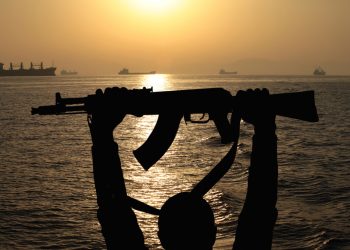Draft Piracy and other Unlawful Acts at Sea Bill
 The Nigeria MaritimeAdministration andSafety Agency (NIMASA) has presented the Draft Piracy and other Unlawful Acts at Sea Bill to industry stakeholders in Lagos.
The Nigeria MaritimeAdministration andSafety Agency (NIMASA) has presented the Draft Piracy and other Unlawful Acts at Sea Bill to industry stakeholders in Lagos.
The draft bill, which relies on the various treaties of the International Maritime Organisation (IMO) ratified by Nigeria, is expected to provide a regulatory framework for defining piracy and criminality at sea, prosecuting and punishing criminals.
At the event, NIMASA Director-General Mr Ziakede Akpobolokemi, underscored the negative impact of piracy, saying that about $3 billion is lost yearly to sea robbery globally and that Nigeria is a major contributor.
The NIMASA boss, who was represented by the Executive Director, Cabotage Service and Labour, Mr Ibrahim Zilani, said: “In a bid to develop a robust legal framework for fighting these incidences on sea, an international conference on piracy was organised by NIMASA in collaboration with the Nigeria Navy.
“One of the resolutions at that conference was to strengthen existing legal framework. This bill is drawn not only from conventions of the IMO that Nigeria is a signatory to, but also provisions of other protocols yet to be conceded to, but important for curbing unlawful acts at sea.”
The Minister of Transport, Senator Idris Umar, stated that insurance costs for importing goods had increased owing to Nigeria’s classification as a high risk area. He, however, added that he was optimistic that the recent attention accorded the menace by the international community and laws like the one being presented, would surely drive the menace down tremendously.
The legal consultant to NIMASA on the bill , Mike Igbokwe (SAN), explained that at the moment there are no laws for successful prosecution of piracy incidences in the country.
Chairman of the bill presentation forum, Hon. Justice Emmanuel Sanyaolu, while quoting some media reports, hinted that trawler operators had been forced out of businesses because of the attacks by some sea robbers, and that these have led to increase on the cost of fish and sea foods in the country.
Source: The Nation





























































